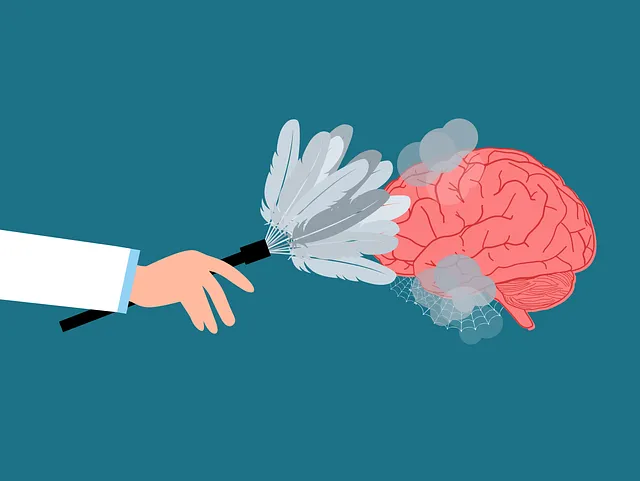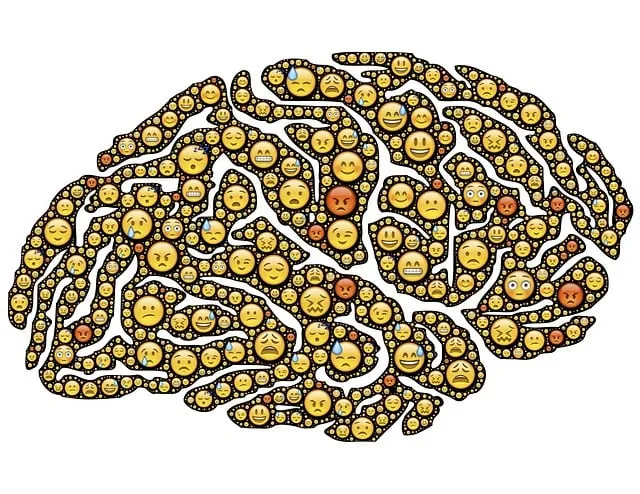The Castle Rock Kaiser Permanente Mental Health Access Center offers personalized crisis intervention, focusing on immediate support and long-term resilience. Their tailored strategies include evidence-based practices, mental wellness coaching, and risk assessment for safe environments. They empower individuals with coping skills, stress management, and community education to overcome challenges like depression and anxiety, achieving lasting well-being.
“In times of crisis, effective intervention strategies can make a profound difference. This article offers a comprehensive guide to navigating mental health crises, drawing from the innovative practices at Castle Rock Kaiser Permanente’s Mental Health Access Center. We’ll explore foundational principles, including understanding crisis intervention and assessing risk. From initial contact to long-term support, we’ll delve into strategies that stabilize individuals and build resilient networks. Discover how these tactics, exemplified by the center’s approach, enhance mental health accessibility.”
- Understanding Crisis Intervention: A Foundation for Help
- Castle Rock Kaiser Permanente: Mental Health Access Center Role
- Assessing Risk and Safety During Initial Contact
- Short-Term Strategies to Stabilize Individuals in Crisis
- Building Long-Term Support Networks and Resources
Understanding Crisis Intervention: A Foundation for Help

Crisis intervention is a critical component of mental health care, offering immediate support and guidance during periods of intense distress or traumatic events. At Castle Rock Kaiser Permanente Mental Health Access Center, we understand that the foundation for effective crisis intervention lies in recognizing the unique needs of individuals facing various challenges. Every person’s experience with a crisis is different, shaped by their personal history, coping mechanisms, and the specific circumstances they find themselves in.
By providing a safe and non-judgmental space, our center empowers individuals to express their emotions freely while guiding them towards practical solutions for managing their mental health. This approach, tailored to each person’s needs, forms the core of our crisis intervention strategies. We believe that understanding and addressing the underlying causes of distress, whether it’s related to mood management, stress management, or burnout prevention strategies for healthcare providers, is essential in fostering long-term resilience and well-being.
Castle Rock Kaiser Permanente: Mental Health Access Center Role

The Castle Rock Kaiser Permanente Mental Health Access Center serves as a beacon of hope for individuals facing mental health challenges. This specialized center offers a comprehensive range of services designed to address various aspects of mental wellness, from acute crisis interventions to long-term support. Their team comprises experienced professionals who utilize evidence-based practices to aid patients in managing and overcoming conditions such as depression and anxiety.
Beyond traditional therapy, the access center promotes innovative approaches like mental wellness coaching programs, focusing on developing practical skills for stress management and confidence boosting. By integrating these strategies, Castle Rock Kaiser Permanente aims to empower individuals to take charge of their mental health, fostering a sense of resilience and overall well-being.
Assessing Risk and Safety During Initial Contact

During initial contact with individuals in crisis, assessing risk and safety is paramount. At Castle Rock Kaiser Permanente Mental Health Access Center, professionals are trained to swiftly evaluate potential hazards and establish a secure environment. This involves not just gauging immediate dangers but also understanding the individual’s history, including past traumas or suicidal ideation. The goal is to create a safe space where individuals feel heard and supported, enabling open communication.
Effective assessment helps in implementing tailored interventions. It could involve developing coping skills for stress management or introducing communication strategies to improve interactions with support systems. In line with the Mental Health Policy Analysis and Advocacy framework, the center’s approach ensures that each individual receives appropriate care, fostering not just short-term relief but also long-term resilience.
Short-Term Strategies to Stabilize Individuals in Crisis

In moments of crisis, immediate intervention can make a significant difference in an individual’s well-being and recovery trajectory. Short-term strategies employed by professionals at the Castle Rock Kaiser Permanente Mental Health Access Center focus on stabilizing the person both emotionally and physically. This may involve assessing and addressing any immediate dangers or risks, ensuring safety, and providing a calming environment to help reduce heightened emotions. Techniques such as active listening, empathy, and validation are crucial tools in de-escalating crises. These methods encourage individuals to express their feelings and thoughts, fostering open communication that facilitates better understanding of the crisis from both the client’s and provider’s perspectives.
Additionally, short-term interventions often include teaching coping skills tailored to the individual’s needs. This could be stress management techniques, relaxation exercises, or mindfulness practices designed to offer immediate relief from anxiety symptoms. Incorporating cultural sensitivity in mental healthcare practice ensures that these strategies are respectful of diverse backgrounds and beliefs, enhancing access to effective mental health care for all. Furthermore, integrating Mental Health Education Programs in community settings empowers individuals to proactively manage their well-being and seek support when needed, contributing to a proactive approach to crisis intervention.
Building Long-Term Support Networks and Resources

Building Long-Term Support Networks and Resources is a vital step in crisis intervention strategies. At Castle Rock Kaiser Permanente Mental Health Access Center, professionals understand that immediate support is crucial, but fostering connections for ongoing care is equally important. By encouraging individuals to develop strong social networks and access resources like counseling services or support groups, they can create a foundation for resilience and recovery. This long-term approach ensures that people have the tools to navigate future challenges and maintain their mental well-being.
Self-Esteem Improvement and Emotional Healing Processes are integral components of this strategy. Through various Self-Awareness Exercises, individuals learn to recognize and manage their emotions effectively. By integrating these practices into daily life, they can build a deeper understanding of themselves, enhance their self-esteem, and develop healthier coping mechanisms. This holistic approach, combined with access to necessary resources, empowers individuals to break free from cycles of crisis and embrace lasting change.
Crisis intervention is a multifaceted process that requires a deep understanding of both immediate and long-term support needs. By drawing on resources like the Castle Rock Kaiser Permanente Mental Health Access Center, professionals can access evidence-based strategies to effectively assess and stabilize individuals in crisis. This comprehensive approach, highlighted through various sections from understanding foundational principles to building supportive networks, ensures that those facing mental health crises receive holistic care tailored to their unique circumstances.






